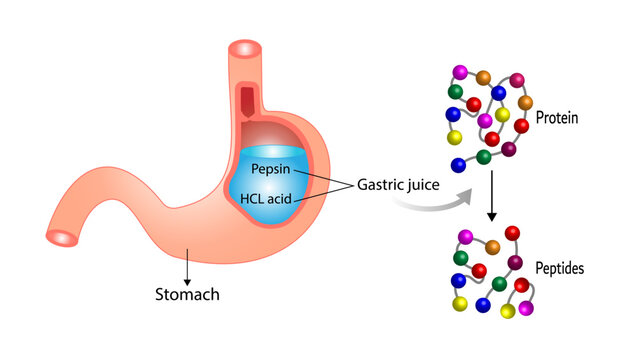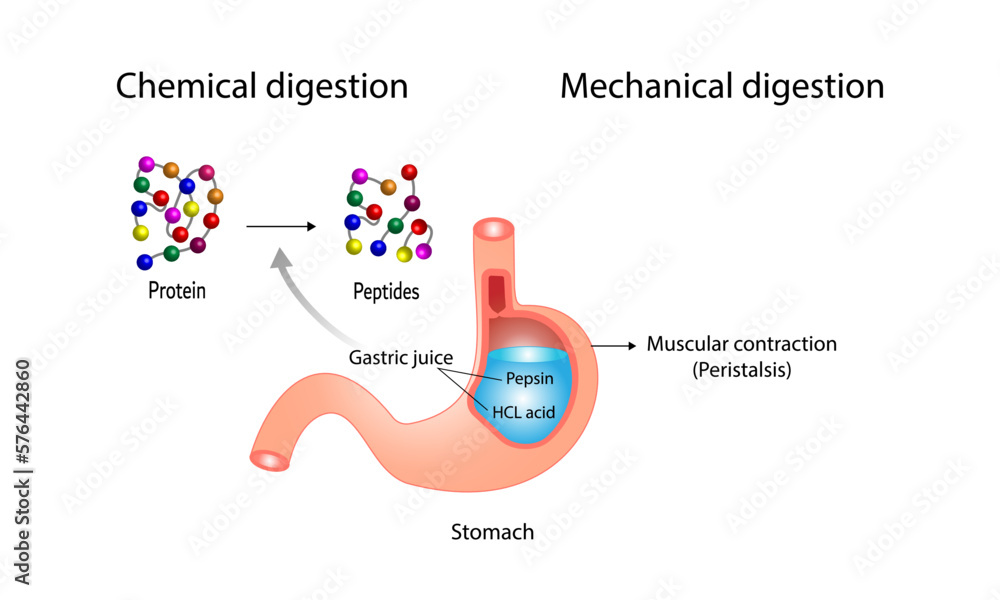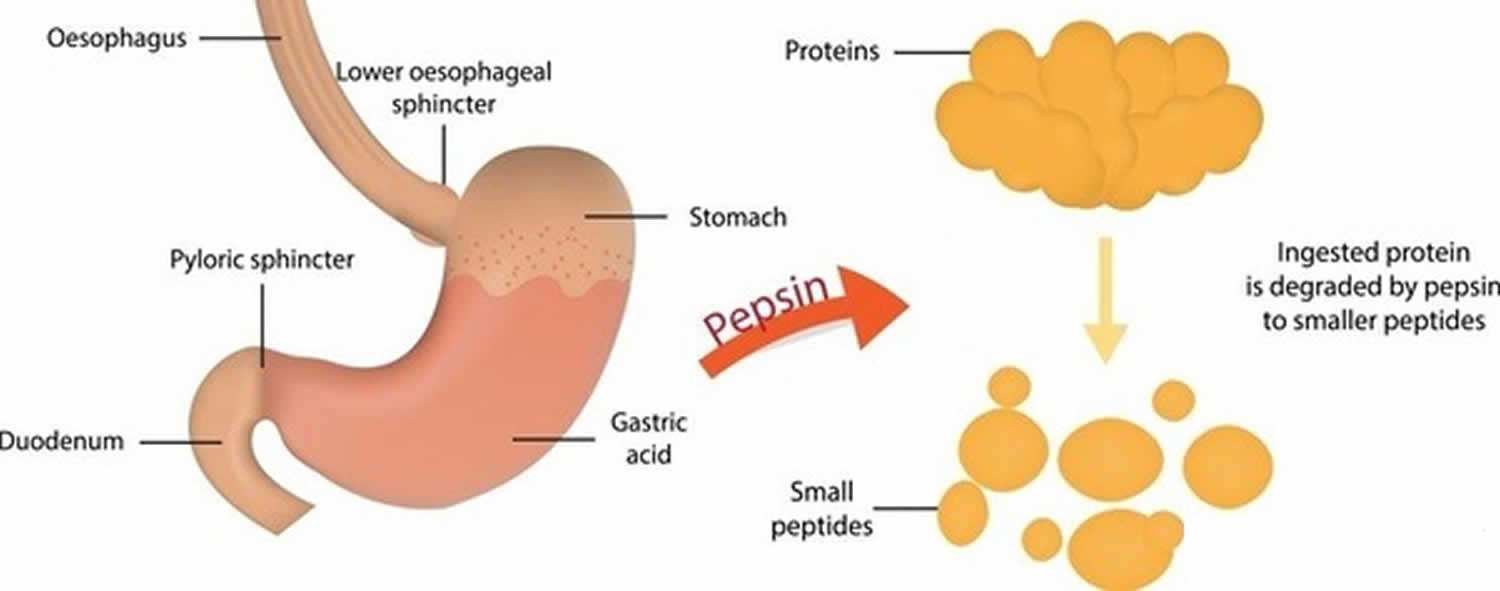Pepsin Is Required For Digestion In The Stomach

Imagine consuming a protein-rich meal, anticipating the nourishment it will provide. But what if your body couldn't effectively break down those proteins, rendering them largely useless? This unsettling scenario becomes reality in the absence of a critical enzyme: pepsin.
While often taken for granted, pepsin plays an indispensable role in the digestive process within the stomach, and its deficiency can lead to significant health consequences. Its absence effectively halts the initial stage of protein digestion, impacting nutrient absorption and overall well-being.
The Crucial Role of Pepsin: A Digestive Linchpin
Pepsin is an enzyme, a biological catalyst, that specifically targets proteins. Secreted by the chief cells in the stomach lining as an inactive precursor called pepsinogen, it is activated by the acidic environment of the stomach.
This activation is crucial because pepsin itself can digest proteins, including pepsinogen, preventing self-digestion in its inactive form. The active pepsin then begins breaking down complex proteins into smaller peptides, essentially chopping them into manageable pieces for further digestion in the small intestine.
Without pepsin, these large protein molecules would pass largely undigested into the small intestine, where their breakdown would be significantly less efficient. This incomplete digestion hinders the absorption of essential amino acids, the building blocks of proteins, which are vital for numerous bodily functions.
The Science Behind Pepsin's Action
The stomach's acidic environment, primarily due to hydrochloric acid (HCl) secreted by parietal cells, is key to pepsin's function. HCl not only activates pepsinogen but also denatures proteins, unfolding their complex structures and making them more susceptible to enzymatic attack.
Pepsin works optimally in this acidic environment, with a pH of around 1.5 to 2. This high acidity would be corrosive to the stomach lining if not for the protective mucus layer secreted by specialized cells.
This layer creates a barrier, preventing the acid and pepsin from digesting the stomach itself. Disruptions to this balance can lead to conditions like peptic ulcers.
Consequences of Pepsin Deficiency
While complete absence of pepsin is rare, conditions that reduce its production or effectiveness can have significant implications. Hypochlorhydria, or low stomach acid, is a common culprit.
Without sufficient acid, pepsinogen is not effectively converted to pepsin, and proteins are not properly digested. This can lead to symptoms like bloating, gas, indigestion, and nutrient deficiencies, especially in amino acids.
Furthermore, undigested proteins in the gut can contribute to intestinal permeability, often referred to as "leaky gut," potentially triggering immune responses and contributing to various health issues.
Addressing Pepsin Deficiency: Diagnosis and Treatment
Diagnosing pepsin deficiency can be challenging. While direct measurement of pepsin levels in gastric juice is possible, it's not a routine clinical test. Healthcare providers often rely on assessing stomach acid levels and evaluating symptoms suggestive of impaired protein digestion.
Treatment typically focuses on addressing the underlying cause of the deficiency. For hypochlorhydria, strategies may include supplementing with betaine HCl (hydrochloric acid) under medical supervision, or addressing conditions that impair acid production.
Dietary modifications, such as consuming easily digestible protein sources and ensuring adequate hydration, can also aid in managing symptoms. Probiotics may also support gut health and improve digestion.
The Broader Impact: Research and Future Directions
Ongoing research continues to shed light on the intricate role of pepsin in overall health. Studies are exploring its involvement in conditions beyond digestion, such as its potential influence on gut microbiome composition and its relationship to allergic reactions.
Scientists are also investigating novel ways to enhance pepsin activity and improve protein digestion in individuals with digestive disorders. This includes exploring the potential of enzyme supplements and developing targeted therapies to address specific causes of pepsin deficiency.
Understanding the full scope of pepsin's function is crucial for developing effective strategies to prevent and manage digestive health issues, ultimately contributing to improved overall well-being.
"Pepsin is a critical enzyme for protein digestion, and its deficiency can have far-reaching consequences for nutrient absorption and overall health,"says Dr. Anya Sharma, a gastroenterologist specializing in digestive disorders.
In conclusion, pepsin is not merely another enzyme; it is an essential component of the digestive machinery. Its role in initiating protein breakdown is fundamental, and its absence or malfunction can significantly impact health. As research continues to unravel the complexities of digestion, understanding and addressing pepsin-related issues will undoubtedly play a crucial role in promoting optimal digestive health for all.










..jpg)







